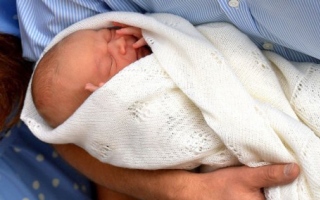- City Fajr Shuruq Duhr Asr Magrib Isha
- Dubai 04:20 05:42 12:28 15:53 19:08 20:30
Visiting hospitals treating patients with the Middle East Respiratory Syndrome Coronavirus (Mers-CoV) is not restricted as long as the infection control policy is followed, a spokesperson of the Health Authority Abu Dhabi (Haad) said.
Last week, Haad announced that four additional cases of the Mers-CoV infection had been identified in Abu Dhabi after the first Emirati patient was admitted with the virus earlier this month.
The four new cases were identified among family and staff that had been in close contact with the Emirati patient.
The 82-year-old Emirati patient is currently being treated at the ICU unit of Sheikh Khalifa Medical Center. Although not specifically mentioned where the other patients are treated, Haad stated that all patients are being treated in isolation.
However, there is no restriction in visiting the patient as long as the infection control policy is followed, said the Haad spokesperson. The same accounts for regular visitors to the hospital.
The hospital has put in place the infection control policy as recommended by the World Health Organisation (WHO). According to this policy, patients with Influenza-like illnesses (ILI) should be separated from other patients in waiting and exam rooms, if feasible.
Moreover, symptomatic patients should be offered surgical masks, facial tissues and receptacles for their disposal. Waiting and exam rooms should be provided with hand hygiene products.
Medical staff are equally subjected to precautionary measures. Surgical masks should be worn when dealing with an ILI patient. When dealing with higher risk patients such as those with severe pneumonia with acute respiratory distress syndrome (ARDS), medical staff should wear a different kind of mask (N95 mask), gowns, eye protection and non-sterile gloves.
Hand hygiene is of great importance, mentions the WHO recommendation. After dealing with the patient staff should wash the hands with water and soap or alcohol-based hand rub.
General recommendations have been made towards precautionary measures everyone can take, such as avoiding close contact with people suffering from acute respiratory infections, and frequent hand washing, especially after direct contact with ill people or their environment.
Haad let know that the patients identified with Mers CoV are in stable condition and all treatment and medical expertise required is provided to deal with the cases.
(Home page image courtesy Shutterstock)
ALSO READ:
Swiss man snaps up royal baby website address

Gator eats 80-pound dog walking with the owner

NRI alert: Indian rupee gains on Friday, hits 58.66 against dollar
Win AED 600 Air Arabia vouchers EVERY DAY!
![]() Follow Emirates 24|7 on Google News.
Follow Emirates 24|7 on Google News.